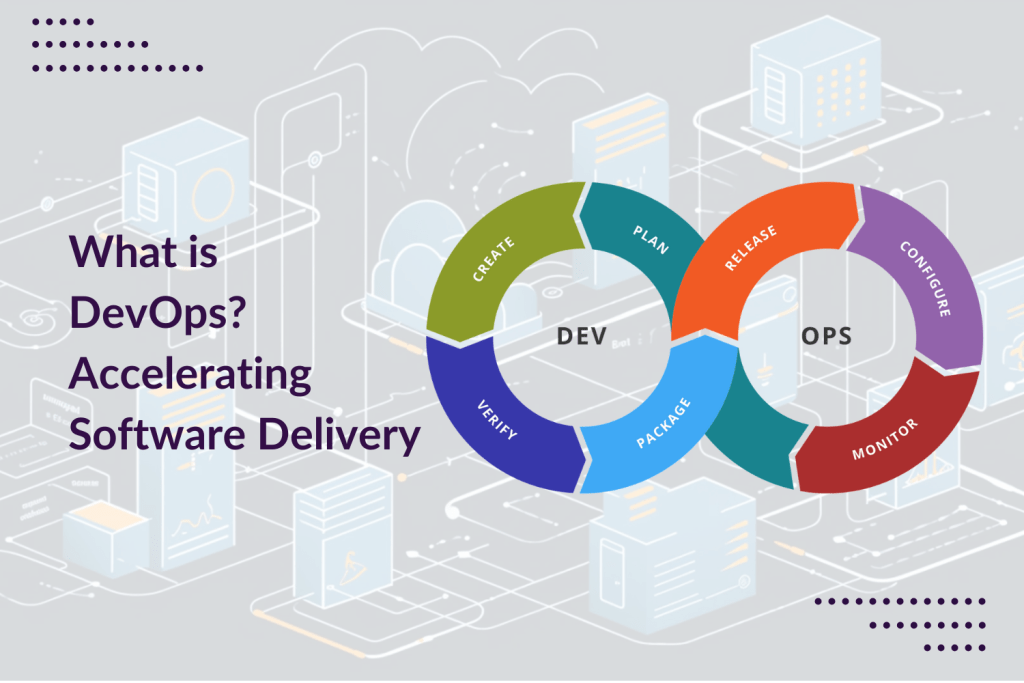In the ever-changing world of software development and IT operations, DevOps has emerged as a powerful methodology that can help organizations streamline their processes, improve collaboration, and enhance overall efficiency. By breaking down silos between development and operations teams, DevOps fosters a culture of collaboration and innovation that can drive real results. In this blog post, we’ll explore the basics of DevOps, its principles, and how it can benefit organizations. So, let’s dive in and discover how DevOps can help you achieve your goals!
What is DevOps?
DevOps is a set of practices that combines software development (Dev) and IT operations (Ops). It aims to shorten the systems development life cycle and provide continuous delivery with high software quality.
Why DevOps?
DevOps is important because it’s a strategy for managing change and complexity. It’s about bringing together the people who create software with the people who maintain and operate it, breaking down the traditional silos between development and operations teams.
Key Principles of DevOps:
Automation:
DevOps emphasizes the automation of repetitive tasks throughout the software development lifecycle. This includes code building, testing, deployment, and infrastructure management. Automation reduces manual errors, accelerates processes, and ensures consistency.
Collaboration:
Collaboration is a fundamental aspect of DevOps. Developers and operations teams work together seamlessly, sharing responsibilities and insights. This collaborative culture extends to other stakeholders, such as quality assurance and security teams, promoting a holistic approach to software delivery.
Continuous Integration (CI):
CI involves the frequent integration of code changes into a shared repository. This practice ensures that code changes are validated through automated testing, promoting early detection of issues. CI facilitates a more reliable and consistent development process.
Continuous Delivery (CD):
Building on CI, CD extends the automation to the delivery process. It focuses on making the software deployment process reliable and efficient, allowing teams to release software to production at any time. CD aims to reduce the time and effort required to deliver new features and updates.
Monitoring and Feedback:
DevOps places a strong emphasis on monitoring applications and infrastructure in real-time. This allows teams to detect issues promptly, understand performance metrics, and gather valuable feedback. Continuous monitoring is crucial for maintaining a stable and reliable software environment.
The DevOps Lifecycle
The DevOps lifecycle typically consists of the following stages:
- Plan: This is where the team defines the system requirements and identifies the necessary tasks.
- Code: Developers write code to implement the defined features.
- Build: The code is compiled and packaged into a deployable artifact.
- Test: Automated tests are run to ensure the system meets the defined requirements.
- Release: The new version of the software is deployed to a production environment.
- Operate: The team monitors the system, ensuring it’s working correctly and efficiently.
- Monitor: The team collects and analyzes data on the system’s performance.
- Feedback: Insights from monitoring are used to plan the next cycle, creating a continuous loop of improvement.
Benefits of DevOps:
Faster Time-to-Market:
DevOps practices, such as automation and continuous delivery, enable faster development cycles. This results in quicker releases of new features and updates, giving organizations a competitive edge in the market.
Improved Collaboration:
By breaking down silos and fostering collaboration between teams, DevOps promotes a culture of shared responsibility. This collaborative approach leads to improved communication, efficiency, and a better understanding of the entire software development lifecycle.
Enhanced Quality and Reliability:
Continuous integration and automated testing ensure that code changes are thoroughly tested, reducing the likelihood of bugs and errors in production. This contributes to the overall quality and reliability of the software.
Increased Efficiency and Cost Savings:
Automation of repetitive tasks and streamlined processes significantly increases efficiency. DevOps practices also contribute to cost savings by reducing manual effort, minimizing downtime, and optimizing resource utilization
Why DevOps Matters
Breaking Down Silos
Traditionally, development and operations teams worked in silos, with each team having its own set of goals and objectives. This often led to conflicts, delays, and inefficiencies. DevOps breaks down these silos, fostering a culture of collaboration and shared responsibility.
Accelerating Delivery
DevOps practices such as continuous integration and continuous delivery enable teams to deliver software more quickly and reliably. This accelerated delivery allows organizations to bring new features to market faster, respond to customer feedback more swiftly, and stay ahead of the competition.
Enhancing Quality
With DevOps, quality assurance becomes everyone’s responsibility. Automated testing and continuous monitoring enable teams to catch and fix bugs early in the development cycle, leading to improved product quality.
Reducing Risk
DevOps practices such as infrastructure as code and policy as code enable teams to manage their infrastructure and policies more effectively, reducing the risk of human error and ensuring compliance with industry standards and regulations.
Boosting Innovation
By automating routine tasks, DevOps frees up teams to focus on what they do best: creating innovative solutions that solve real-world problems. This leads to increased productivity and job satisfaction.
Improving Customer Satisfaction
Faster delivery, enhanced quality, and innovative solutions lead to improved customer satisfaction. Happy customers are more likely to remain loyal to your brand and recommend your products or services to others.
Also read: DevOps Exploring the Essential Programming Languages and Tools
DevOps Tools
There are many tools available that can help implement DevOps practices. Some popular ones include:
- Jenkins: An open-source tool for continuous integration and continuous delivery.
- Docker: A platform that enables developers to automate the deployment, scaling, and management of applications within containers.
- Ansible: An open-source software provisioning, configuration management, and application-deployment tool.
- Nagios: An open-source computer software application that monitors systems, networks, and infrastructure.
In the fast-paced world of software development, embracing DevOps principles can be a game-changer for organizations seeking to enhance collaboration, accelerate delivery, and improve the overall quality of their software. By fostering a culture of automation, collaboration, and continuous improvement, DevOps empowers teams to adapt to change more effectively and deliver value to users more efficiently.

